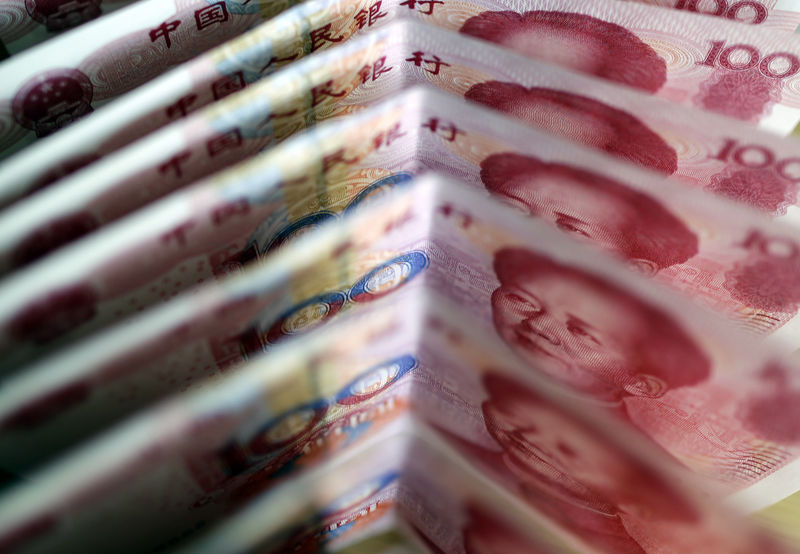(Bloomberg) --
Beijing is allowing faster gains in the yuan as it seeks to cheapen imports and bolster weak consumer spending.
That’s one theory touted by DBS Bank Ltd. and Mizuho Bank Ltd., who say a stronger yuan is ideal for Beijing as it aims to boost imports and encourage people to spend more at a time when Chinese President Xi Jinping has pushed for a more self-reliant economy. That marks a shift from when Beijing used to fret about a strong yuan undermining the nation’s exports to the world.
China’s central bank has refrained from sending obvious signals with its daily fixings. That’s even as the yuan gained about 5% since May versus the dollar to its highest level in more than a year. The fixings -- - a tool the PBOC often uses to limit currency strength -- have generally been tracking the market higher as the dollar has weakened.
A stronger exchange rate also helps remove a flashpoint in relations with the U.S., with President Donald Trump having long accused China of keeping the yuan artificially weak. Domestic banks will be more inclined to hold a currency that isn’t depreciating, which in turn would help Beijing reduce the financial sector’s reliance on the greenback.
“Tolerance toward a stronger yuan when it is fundamentally driven is going to be high,” said Wang Ju, director and senior foreign-exchange strategist at HSBC Holdings Plc (LON:HSBA) in Hong Kong. “A stronger yuan would help China diversify away from the dollar and optimize its resource allocation.”
The currency’s rally since this year’s nadir in late May has made it the best performer in Asia, with the buying momentum still standing close to the strongest since January. The yuan’s large interest-rate premium over the yield on the dollar also helped to boost demand.
Such strength is already helping China, which was reported to be buying a record amount of American soybeans this year as lower prices help it boost purchases pledged under the trade deal. But still, the economy remains fragile -- the country’s imports contracted in all but one month since March, while retail sales came out worse than economists had expected for five months in a row.
“The stronger yuan could stimulate imports and further expand the domestic consumption market,” said Ken Cheung, chief Asia currency strategist at Mizuho. “China’s leaders will be less tempted to use depreciation to stimulate the economy, as the export sector plays a secondary role in growth now.”
But this doesn’t mean Beijing will let the yuan run wild. A key indicator of strength is the CFETS RMB Index, which tracks the yuan against 24 peers. It shows the yuan has appreciated about 2.2% against them since the start of August.
The central bank may set the fixing at weaker-than-expected levels if the gauge jumps rapidly to a point where the strength eats into exports, said Tommy Ong, managing director for treasury and markets at DBS Hong Kong Ltd.
But for now, the yuan has room to advance further said Ong, who sees demand for the greenback being reduced after the U.S. presidential election in November. “A stronger yuan is a better fit for China’s growth model,” he said, predicting the currency to hit 6.7 per dollar by year-end.
©2020 Bloomberg L.P.
